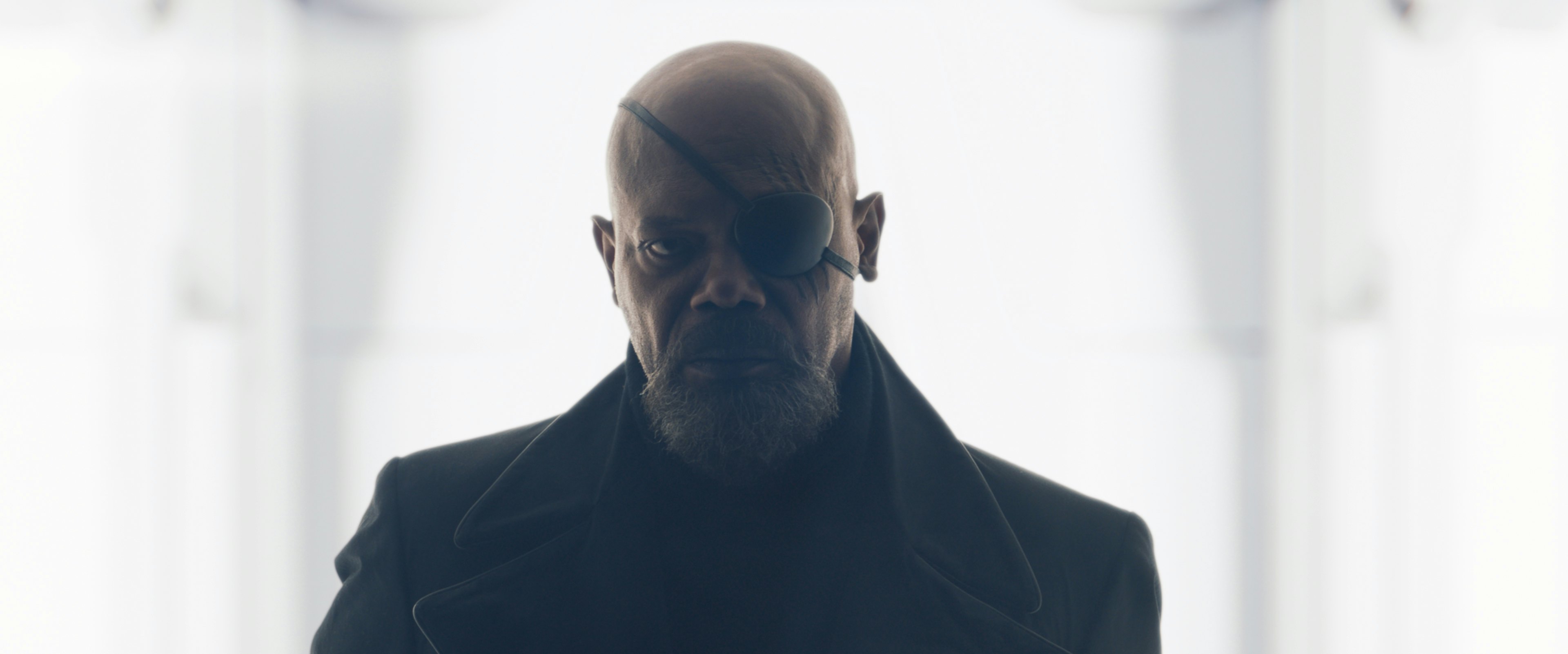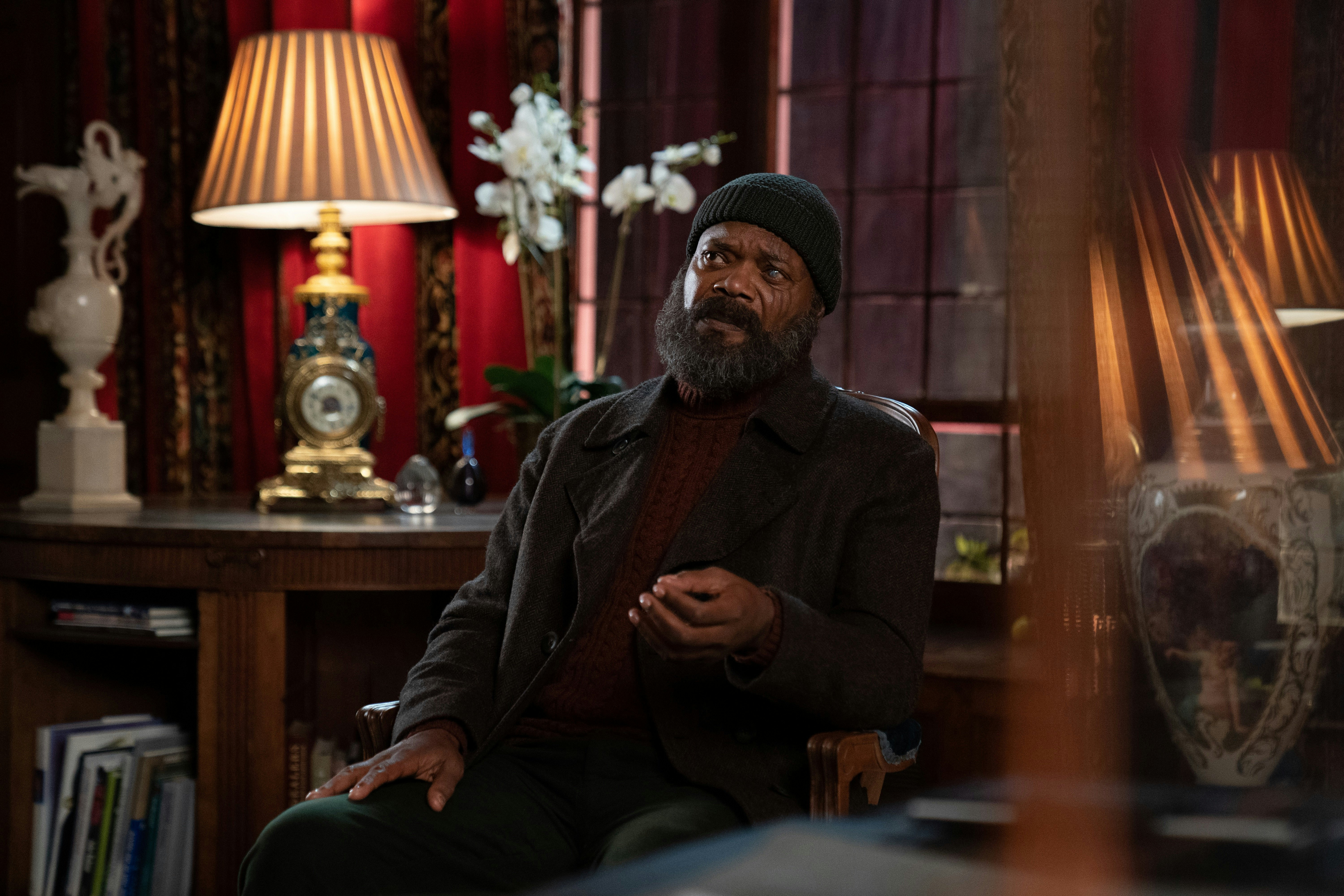
There are two things that the Secret Invasion premiere cares about: Skrulls and The Blip. In its first sequence, the Disney+ series not only introduces the possibility of a Skrull invasion of Earth but reveals that said attack is already underway. This revelation prompts Nick Fury (Samuel L. Jackson) to finally leave his S.A.B.E.R. facility in space and return to Earth.
Once he does, Nick gets told multiple times that he’s never been the same since The Blip. Characters like Talos (Ben Mendelsohn) and Maria Hill (Cobie Smulders) characterize his journey to space after Avengers: Endgame as a kind of self-imposed exile, while Sonya Falsworth (Olivia Colman) posits that Fury lost his signature spy touch as a result of The Blip. These comments, along with a certain character’s shocking death at the end of Secret Invasion Episode 1, set up an unexpected arc for Fury, one that will see him hopefully redeem himself as both a spy and protector of Earth.
The problem? None of what the Secret Invasion premiere tells us about Nick Fury has actually been set up or established in the Marvel Cinematic Universe.

Nick Fury’s presence in the MCU has been, shall we say, limited in recent years. Since his brief cameo in 2019’s Avengers: Endgame, the character has only appeared again in one other MCU title: Spider-Man: Far From Home. Of course, while he has a sizable role in that film, it’s also revealed in one of Far From Home’s post-credits scenes that the Nick Fury featured throughout much of the movie isn’t the real Nick Fury, but merely Ben Mendelsohn’s Talos posing as him as a favor. At the end of Far From Home, it’s also revealed that Jackson’s Fury left Earth after Endgame to go on a kind of vacation-esque mission in space with a whole bunch of Skrulls.
MCU viewers haven’t, in other words, been given any reason up to this point to believe that Nick Fury was irrevocably changed in any way by the events of Infinity War and Endgame. As a result, the numerous comments that are made throughout Secret Invasion about The Blip’s effect on Fury all ring pretty false. Even Fury’s own admission that he experienced a crisis of faith after Endgame falls a bit flat because we’ve been given no evidence over the course of the past four years to believe that’s actually been the case for the character.
All in all, Secret Invasion’s numerous references to The Blip ultimately feel like retroactive attempts to make the now-infamous MCU event a bigger deal for a character whose involvement in the actual fight against Thanos was, at best, minimal. It’s surprisingly weird, in fact, for Secret Invasion to try to make The Blip a huge part of Nick Fury’s arc when the MCU itself has never really laid the foundation for that. The series’ decision to do so, consequently, just feels like yet another example of how disconnected the MCU itself now feels.

In the years since Avengers: Endgame masterfully wrapped up the MCU’s first overarching story, the franchise has felt increasingly scattered and unfocused. Key character beats, like Nick Fury’s supposed crisis of faith, have seemingly happened off-screen in-between titles, while major moments in certain films and TV shows have had little-to-no impact on the MCU at large (yes, we are still talking about the third act of Eternals). To put it succinctly: A franchise that was once known for its cohesion now seems totally disconnected and unwieldy.
That’s perhaps never been as clear as it is in Secret Invasion Episode 1, which desperately tries to sell viewers on a mental and emotional shift in one of the MCU’s oldest heroes that ultimately feels hollow and unearned. If the MCU is going to continue focusing on The Blip four real-life years after Avengers: Endgame, it needs to do a better job of actually integrating it into its stories.







